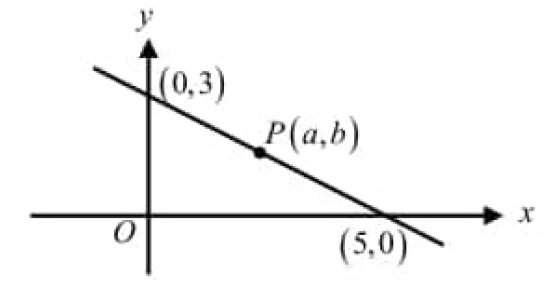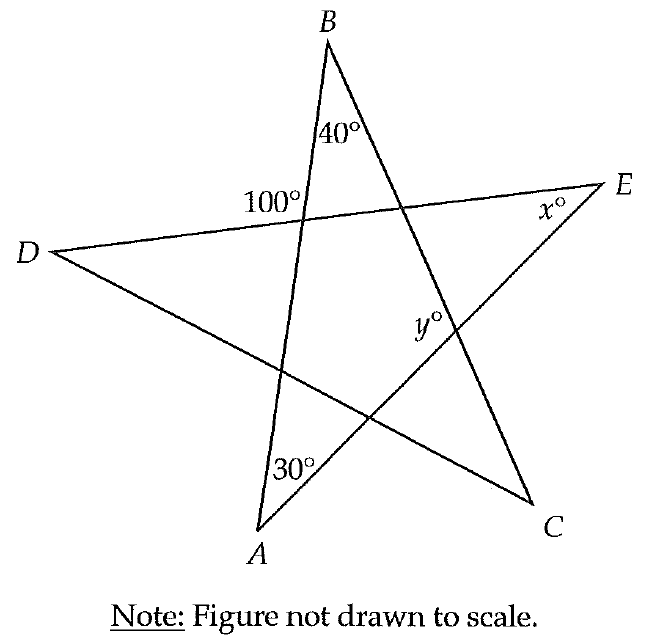FRIEZE PATTERNS GEOMETRY
A frieze pattern or border pattern is a pattern that extends to the left and right in such a way that the pattern can be mapped onto itself by a horizontal translation. In addition to being mapped onto itself by a horizontal translation, some frieze patterns can be mapped onto themselves by other transformations.
1. Translations T
2. 180° rotation R
3. Reflection in a horizontal line H
4. Reflection in a vertical line V
5. Horizontal glide reflection G
Describing Frieze Patterns
Example 1 :
Describe the transformations that will map each frieze pattern onto itself.
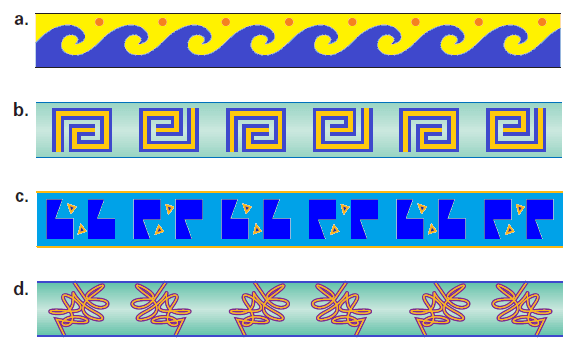
Solution :
a. This frieze pattern can be mapped onto itself by a horizontal translation (T).
b. This frieze pattern can be mapped onto itself by a horizontal translation (T) or by a 180° rotation (R).
c. This frieze pattern can be mapped onto itself by a horizontal translation (T) or by a horizontal glide reflection (G).
d. This frieze pattern can be mapped onto itself by a horizontal translation (T) or by a reflection in a vertical line (V).
Classifications of Frieze Patterns
T - Translation :

TR - Translation and 180° rotation :

TG - Translation and horizontal glide reflection :

TV - Translation and vertical glide reflection :

THG - Translation, horizontal line reflection and vertical glide reflection :

TRVG - Translation, 180° rotation, vertical line reflection and horizontal glide reflection :

TRHVG - Translation, 180° rotation, horizontal line reflection, vertical line reflection and horizontal glide reflection :

To classify a frieze pattern into one of the seven categories, first decide whether the pattern has 180° rotation. If it does, then there are three possible classifications: TR, TRVG, and TRHVG.
If the frieze pattern does not have 180° rotation, then there are four possible classifications: T, TV, TG, and THG. Decide whether the pattern has a line of reflection. By a process of elimination, you will reach the correct classification.
Classifying a Frieze Pattern
Example 2 :
Categorize the snakeskin pattern of the mountain adder.
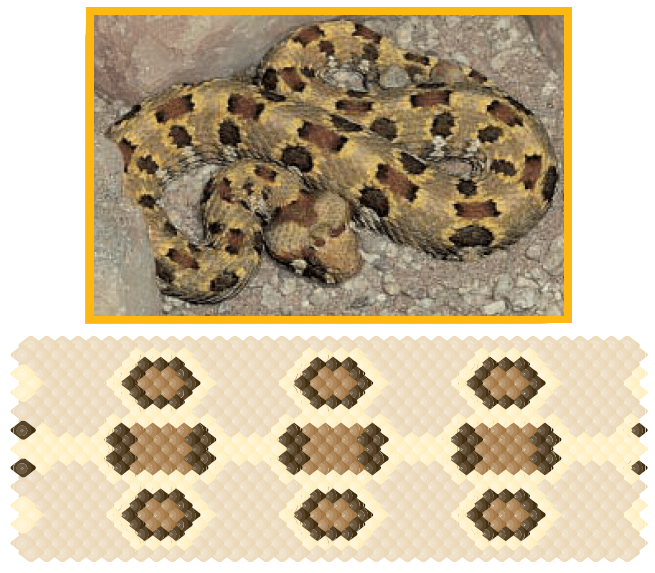
Solution :
This pattern is a TRHVG. The pattern can be mapped onto itself by a translation, a 180° rotation, a reflection in a horizontal line, a reflection in a vertical line, and a horizontal glide reflection.
Using Frieze Patterns in Real Life
Example (Identifying Frieze Patterns) :
The frieze patterns of ancient Doric buildings are located between the cornice and the architrave, as shown below.
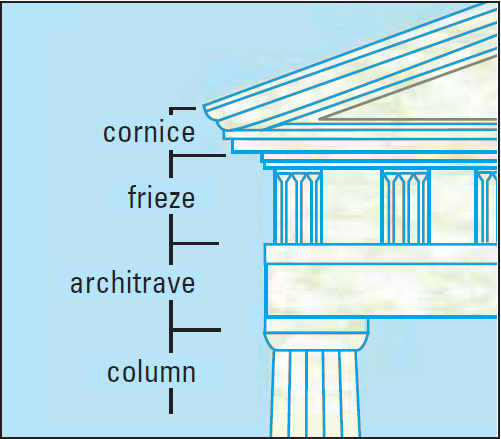
The frieze patterns consist of alternating sections. Some sections contain a person or a symmetric design. Other sections have simple patterns of three or four vertical lines.
Portions of two frieze patterns are shown below. Classify the patterns.
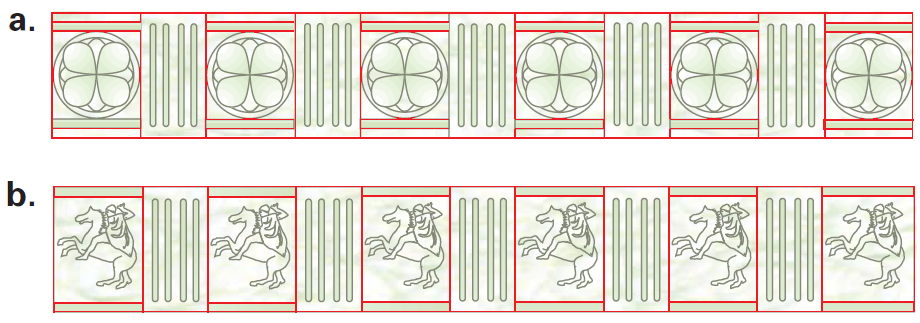
Solution :
a. Following the diagrams on the previous page, you can see that this frieze pattern has rotational symmetry, line symmetry about a horizontal line and a vertical line, and that the pattern can be mapped onto itself by a glide reflection. So, the pattern can be classified as TRHVG.
b. The only transformation that maps this pattern onto itself is a translation. So, the pattern can be classified as T.
Drawing a Frieze Pattern
Example 3 :
A border on a bathroom wall is created using the decorative tile at the right. The border pattern is classified as TR. Draw one such pattern.
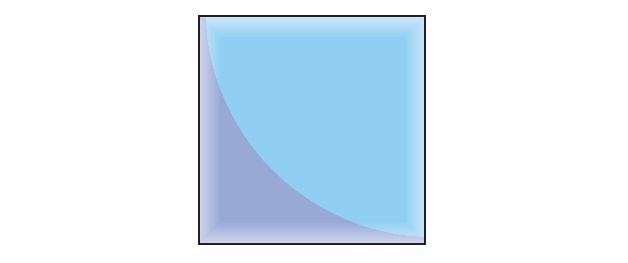
Solution :
Begin by rotating the given tile 180°. Use this tile and the original tile to create a pattern that has rotational symmetry. Then translate the pattern several times to create the frieze pattern.

Kindly mail your feedback to v4formath@gmail.com
We always appreciate your feedback.
©All rights reserved. onlinemath4all.com
Recent Articles
-
Digital SAT Math Problems and Solutions (Part - 134)
Apr 02, 25 12:40 AM
Digital SAT Math Problems and Solutions (Part - 134) -
SAT Math Resources (Videos, Concepts, Worksheets and More)
Apr 02, 25 12:35 AM
SAT Math Resources (Videos, Concepts, Worksheets and More) -
Digital SAT Math Problems and Solutions (Part 135)
Apr 02, 25 12:32 AM
Digital SAT Math Problems and Solutions (Part 135)
